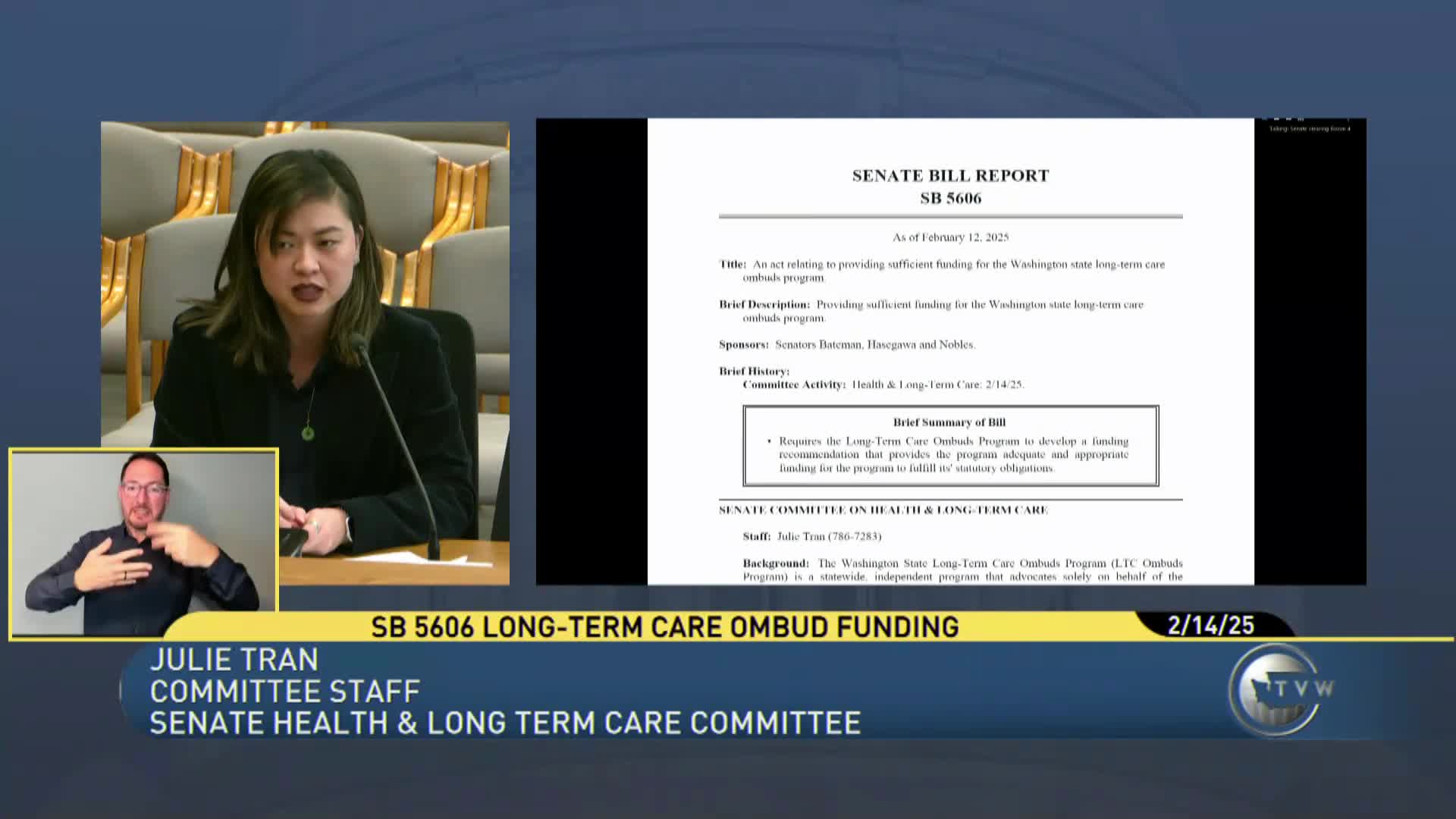Bill would require Commerce to recommend sustainable funding for Washington long-term care ombuds program
Get AI-powered insights, summaries, and transcripts
Subscribe
Summary
Senate Bill 5606 would direct the Department of Commerce, in consultation with OFM and the Long-Term Care Ombuds program, to develop biennial funding recommendations ensuring the ombuds program can meet federally required services as Washington’s aging population grows.
Senate Bill 5606, sponsored by Sen. Bateman, would create a process for the Department of Commerce to develop and submit funding recommendations to ensure the Long-Term Care Ombuds program has resources commensurate with the population it serves.
Nut graf: The long-term care ombuds program is a federally required, resident-advocacy program that investigates and resolves complaints for residents in licensed long-term care settings. Bill proponents said Commerce should produce a biennial funding recommendation—submitted to OFM and the Legislature by June 1 of even-numbered years—so budget writers can consider sufficiency and staffing that match population growth and service need.
Testimony highlights: Melanie Smith (Long-Term Care Ombuds program) told the committee the program sits outside state government budget processes and cannot automatically grow to match rising resident counts; she cited an Institute of Medicine guideline of one full-time ombuds per 2,000 residents and said Washington currently averages about one per 3,600 residents. Commerce legislative director Dave Pringle described collaborative work with the ombuds and noted Commerce had earlier developed funding-model options for the Legislature. Regional ombuds and Area Agency directors described volunteers and staffing strains and rising resident counts; Mike Reardon (Area Agency on Aging and Disabilities, SW Washington) described nearly 100% growth in volunteer hours in his region between 2020 and 2024 and increasing adult-family-home beds.
Why it matters: Supporters argued the bill would create a predictable, evidence-based recommendation process so that the program can meet federal obligations and maintain resident protections as demand grows.
Ending: The committee took public testimony and closed the hearing; no committee vote was recorded during the Feb. 14 session.
